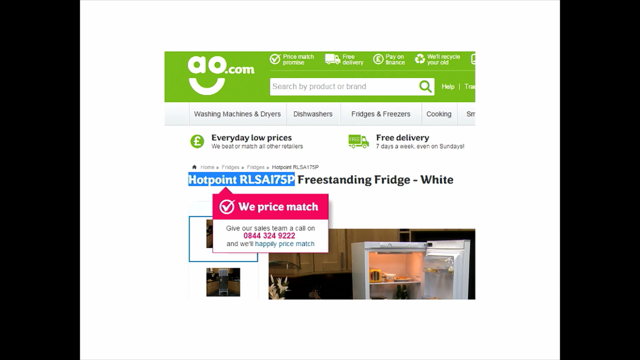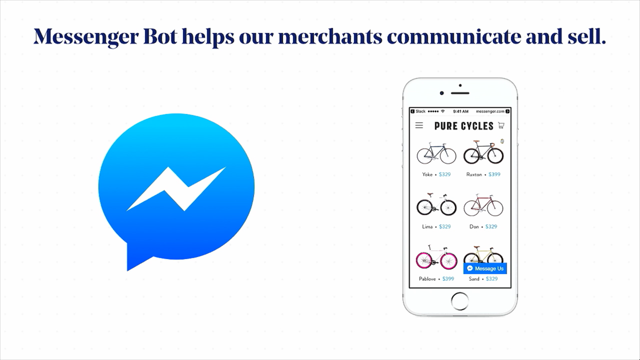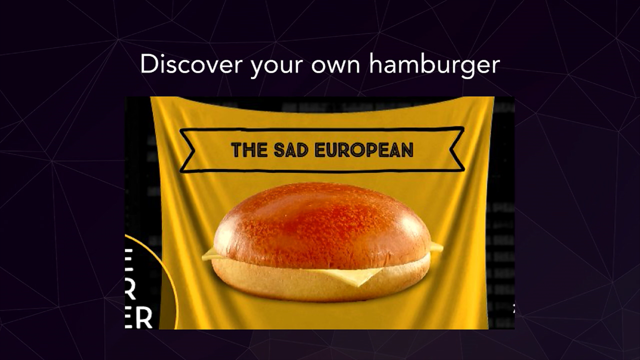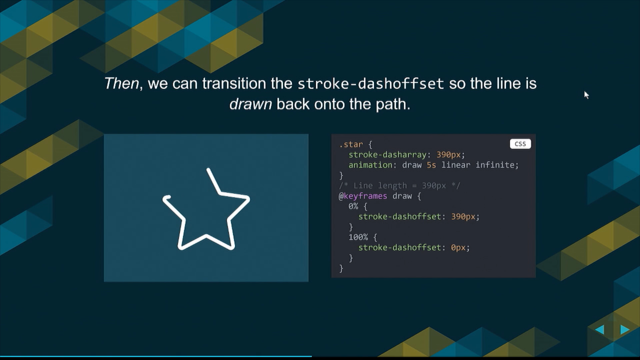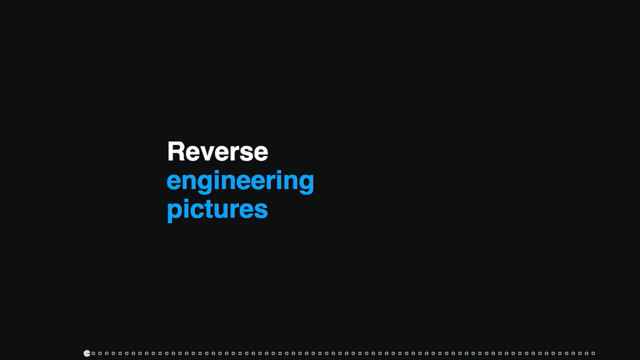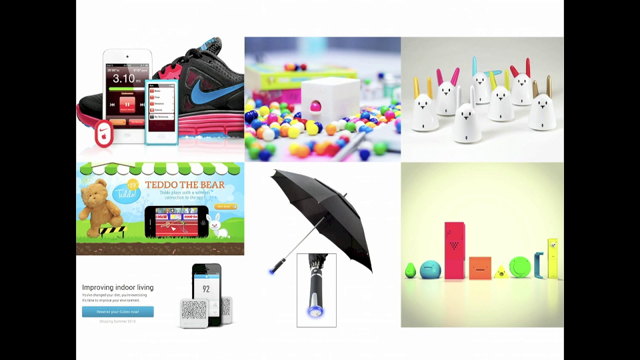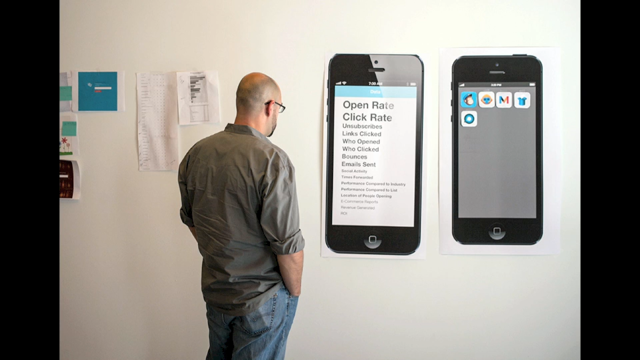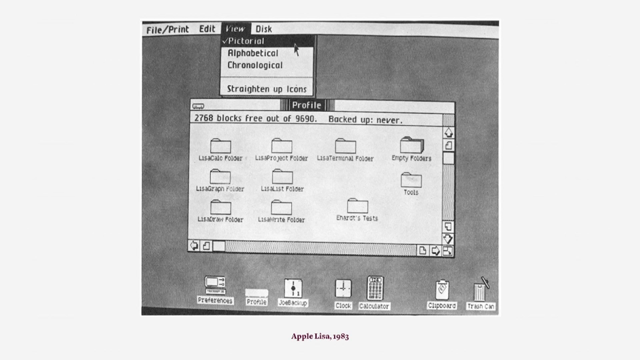The Future of Social Media: An Optimistic Take

Introduction: Realism Over Optimism
Jon Bell opens his talk by clarifying his approach, which focuses on real data and existing technologies rather than optimistic visions of the future. He emphasizes the importance of recognizing current innovations that have not yet reached mainstream awareness. Bell introduces two metaphors—roads and cars, and water filters—to illustrate the current state of social networks and the internet. These metaphors set the stage for a discussion on the potential of open protocols and filtering mechanisms to improve online interactions.
The Power of Open Protocols and Filtering
Jon Bell explains the significance of open protocols like those used in the Fedi verse, highlighting how they allow for interoperability between different platforms, such as Mastodon and Meta's Threads. He contrasts this with the closed nature of traditional social networks. Bell also discusses the importance of filtering mechanisms, using his experience at Twitter to illustrate how filtering can improve user experience by allowing users to block unwanted interactions based on specific criteria. He argues that these features are already in place and effective, particularly in platforms like Blue Sky.
Enhancing Content Discovery Through Tagging
Bell critiques the limitations of current algorithms, which prioritize engagement over content quality. He advocates for user-driven tagging systems that can enhance content discovery and improve algorithmic recommendations. By allowing users to label content, platforms can better identify and filter out low-quality or misleading information. Bell highlights how Blue Sky is already implementing such features, which could lead to more accurate and personalized search results, reducing the prevalence of engagement bait and improving overall user satisfaction.
Revolutionizing Algorithms and User Control
Jon Bell envisions a future where users have greater control over the algorithms that curate their content. He suggests that users should be able to adjust algorithmic settings to better reflect their preferences, thereby enhancing their online experience. Bell argues that integrating conversational interfaces into settings could make them more accessible, allowing users to easily communicate their needs and preferences. This approach would benefit both users and advertisers by fostering more meaningful engagement.
Aggregation and the Return to Diverse Content
Bell discusses the potential for social networks to aggregate diverse types of content, moving beyond the limitations of current platforms. He envisions a system where creators can seamlessly share various projects, such as newsletters and music, through a unified network. This would eliminate the need for tools like Linktree, allowing users to follow creators' work more easily. Bell argues that this approach aligns with the open protocol philosophy of the Fedi verse, enabling richer and more varied content experiences.
Addressing Concerns and the Role of Capitalism
Bell addresses common concerns about the motivations of social media companies, acknowledging that while engagement is a priority, companies are also interested in sustainable user satisfaction. He argues that the features he proposes would benefit both users and businesses by fostering longer-term engagement. Bell draws parallels to historical media transitions, suggesting that social media is currently in a similar phase of evolution, poised for significant innovation and improvement.
A Vision for the Future of Social Networks
In his concluding story, Bell outlines a plausible scenario where small innovations in social media apps lead to widespread changes in user experience and platform capabilities. He describes how features like profile search, tagging, and customizable algorithms could transform social networks, making them more user-centric and less reliant on engagement-driven models. Bell remains optimistic about the potential for open protocols to democratize social media, allowing the best products to thrive in a competitive landscape.
All right.
Thank you everybody.
Now I need to talk about this word optimistic right up front.
I'm not a particularly optimistic person, so I'm the kind of person that sits in a conference like this and people talk about changing the world, and I'm sitting with my arms crossed, like I don't know.
I don't buy it.
So this talk is not particularly optimistic in the traditional sense.
It's more about real data.
I'm not gonna be talking about how everything's just gonna be fine 'cause we're gonna change human nature.
I'm not gonna talk about, just if we just imagine it really hard, Zuckerberg's gonna turn his company into a charity.
That's not what I'm gonna do here.
What I'm gonna talk about is a failure of imagination.
And what the reason I love this talk so much is I'm talking about actual stuff that has already shipped.
It's just that the mainstream hasn't caught up yet.
I'm not going to try to make you think about something that might exist in five years.
I'm gonna shine a light on things that are actually happening already and have huge impact.
So to get there, I have to talk about two metaphors to get things going, just to get 'em in your head and then we'll go from there.
Number one, roads and cards.
If you're going to make a social network, imagine it like a road and then you put a bunch of cars on there that are only belonging to your network.
You don't see other cars on there 'cause they don't fit there.
They go on their own social network.
That's how you have things like, okay, I'm either gonna go on Twitter or I'm gonna go on blue sky, right?
You do one or the other 'cause they don't talk.
But if you use email, that's not a problem, email's an open protocol, so you can send me an email on Gmail and I can receive it on Outlook or Apple Mail or whatever.
Open protocols are cool.
And that's what the Fedi verse is.
If you've heard of Mastodon, that's on the Fedi verse.
Something that people, often overlook is that meta with their product threads with over 200 million users is also on the fedi verse Today, right now, that's not coming later.
The Fedi verse already has this giant organization meta and this open source thing, Mastodon, they're already in an open protocol.
Now, quick shout out to Blue Sky.
I love blue sky.
Blue sky messes up my talk a little bit because they're also open.
They're also awesome.
They're not technically on the same road here.
They're actually in their own kind of thing.
But in this talk, when I say fedi verse, I'm also referring to blue sky.
There people are working on bridging them, so we're gonna pretend that it's all one protocol for now.
All right.
Second metaphor you need to think about is about water filters.
This really frustrates me.
When people think about the internet, they're always like, it just sucks.
It's just bad, and there's nothing we can do.
And it's very defeatist and it's actually not backed up by facts.
Long time ago, it was cool to see this come up earlier, long time ago when people were dying.
We were like, there's a problem here.
And everybody's what's the problem?
And they were like, I don't know.
This is bad air.
Just miasma.
And that's the way we talk about the internet.
We're like, it's just bad.
What are you gonna do?
What you do idiot, is you figure out what's wrong and then you filter it.
And then you find the good sources, you find the bad sources, and that's how you do it.
And this isn't just talk.
I have the receipts.
I worked at this place Twitter.
Whoops.
I worked at Twitter.
And at Twitter, I'm gonna show you four slides.
These are real.
I didn't modify them in any way.
I'm about to show you four slides from January, 2016.
This is me presenting to leadership, explaining what features we were shipping, and you'll notice a theme here.
Hey everybody, this is what we're working on, muting keywords, filtering, notifications.
And removing replies, which turned into hide replies.
'Cause we realized that politicians were removing and we're like, Ooh, they should hide.
And then you should be able to click a button to see what they put into the memory hole.
But those three verbs are all about filtering.
What we realized way too slowly is that the best stuff doesn't rise to the top doubly.
So when you're dealing with raw sewage.
You just need filters.
So that's what I'm gonna talk about today.
Got these four things.
I'm gonna talk about how filtering is already working.
This is already happening.
This is not a talk about the future.
It's already happening.
We're just not talking about it enough yet.
Thing number one, weird thing about social media.
You can't search for people.
You can search for people, but you can't search for their profile stuff.
So let's say you wanted to find other people.
This is a real screenshot.
Let's say you wanted to find other people that used to work at Twitter.
See how that says X Twitter?
You should be able to do a search for the phrase X Twitter and find someone.
Actually, no.
These are all real search results of what on threads.
None of this is useful.
None of this is valuable, and we all know what the search results should look like when you try to look for somebody, right?
It should look like that, but it doesn't.
It looks like that.
And we're gonna look back in five years and be like, this is really weird that we never let people's search for people's profiles.
Blue Sky does a really good job with this today, right now, but not all social media does.
This has huge implications.
Even though it looks small, you should be able to do a search for like comic book artist Sydney or web directions and get stuff showing up in the profile.
Doesn't actually work yet today.
Not everywhere.
The flip side of it though, is much more significant.
If you are a person of color on the internet or you are a woman or you are trans, you deal with people all day attacking you, and so we teach these people well, you just block 'em.
That's not fair.
You shouldn't have to block every single time someone is rude to you.
You should be able to block on a phrase you should be able to say, if you say White lives matter in your profile, and I'm a person of color, we don't need to talk.
Think about how powerful that is, that you would just press a button, and whether that's 10 people or 10 million people, you just don't have to deal with them.
Or let's say your trans and you're like, you know what?
If you say proud turf in your profile, we don't need to have a conversation.
That's an example where filtering can really help a lot.
And again, I wanna reiterate those features that I just described.
That's how the Fed averse can work.
And in Blue Sky's case, it already does work.
Let's talk about content.
The problem with content is that the algorithm is just super stupid.
I love that I went after the previous talk 'cause it sets me up so well for a lot of these comments.
The algorithm is stupid.
The algorithm doesn't understand the difference between these tweets in any significant way.
They only understand engagement.
So they come through here and it's 83 views.
I don't know, but humans see this now, if you are of a certain age, you might have used flicker in the past or maybe Metafilter.
If you're a super nerd like me, or Delicious or Pinboard, we solved this problem.
Sometimes people call this a fullsonomy taxonomy done by the people.
If you could go in and label content, all of a sudden the algorithm gets way smarter and it has huge impact.
Here's another one.
We know that this is a funny parenting meme algorithm.
Doesn't know that.
Or how about this one?
Let's dive into this.
Someone says the earth is flat.
The algorithm doesn't really know much.
But if you could label it, you could be like, aha, this is a lie.
And you're probably thinking, 'cause we're all very smart in this room, you're probably thinking, but what about bad actors?
What about when someone puts in other stuff?
I'm gonna say something controversial, but it's something we don't talk about enough outside of the whiteboard sessions at Twitter.
This is good.
It's good.
The algorithm should know that this is controversial.
Some people don't wanna see controversial stuff like this.
The algorithm first figures out who's saying what.
Oh, it looks like everyone agrees.
This is the Flat Earth theory.
43 people say it's a lie.
Seven people say it's true.
But here's the really exciting part.
It can start doing analyses of the different bubbles, and it can be like, oh that's really weird.
95% of the people pushing this lie are from a North Korea troll farm.
And then it can just do the same thing with your own group.
Your own group could be like, yeah, your group, the people that you've chosen to follow, they are pointing out that this is a lie.
Guess what?
We're not gonna show it to you.
That's extremely powerful.
The ability to season your friend's algorithm.
That's a huge deal.
Now, we've gotten there in the past where we talk about shared block lists, but this is shared algorithmic juice.
This is huge.
This is a really big deal, again possible today.
I don't know if you know this, but blue sky, they call this labeling.
I use the word, tagging, but still this exists today in a slightly different form.
But the concept exists.
Now if we had this, we wouldn't see engagement bait anymore.
And I know that's like big words, but it's true.
You wouldn't see engagement bait anymore because instead of thinking, Hey John, you wanna see this 'cause they're arguing about some stupid bullshit, it would be tagged as this is just engagement bait.
You're not gonna be into this.
Or look at the flip side.
Flip side.
This is a real person.
I totally favorited this, whoop, I wrote today only a blog post, but better than nothing, no engagement.
The, algorithm has no reason to understand how powerful it is.
But I totally wanna high five this person 'cause I understand this.
I'm also a writer.
The algorithm isn't trying to keep you angry.
The algorithm's just too stupid because it doesn't have labeling and tagging.
Again, I wanna reiterate, this technology exists right now and has already been rolling out on Blue Sky.
This is not a future concept.
Now, if we had that, I'm gonna say something that sounds really big and really bold, but I can back it up.
Search would be almost perfect.
Imagine doing a search for articles about board games today.
You get a listicle from Google.
But no, imagine a world where things are tagged as article and board game, and you're probably cynically thinking.
Yeah, but what about SEO and spammers?
No, As soon as the SEO and spammer come in, you tag it as SEO and spam.
It doesn't show up.
Can you imagine a search where you actually saw the stuff that you wanna see every time if you did a search for insightful articles?
It's very broad.
Now imagine it's insightful articles about Sydney.
Okay, so now it's filtered to just Sydney insightful articles about Sydney written by women this month.
Boom, you've got a magazine like that's amazing.
And it turns out we have it already.
This is Pinboard.
This is Pinboard.
I did the same search, right?
See up there.
Insightful Sydney woman.
The only issue with this particular screenshot is that Pinboard is not a very large network, but imagine this times 200 or 300 million people.
Imagine this times every single URL across the internet at all times because every time you hit post, it goes into the Fedi verse and people can tag it and learn from it.
Huge.
Now, the impact this has on algorithms is amazing.
Remember when I said failure of imagination before?
There's a huge failure of imagination with, algorithms.
We're just like, it's just whatever Zuckerberg wants.
And then I'm sad.
That's what we think about algorithms.
We think that's how much control we have.
That is not true.
It's really sad.
A lot of people just spend time yelling at the algorithms.
Hey algorithm, can you please do this?
I would sure like to see more of this other thing.
This is what we've been reduced to.
But it's pretty clear look, you just need something really simple like this.
There should be an algorithm option in your settings.
You should go into it.
You should see what the algorithm thinks.
This ties straight into the previous stock.
It should say, Hey, you know how you bought a baby stroller 17 years ago?
We still think you want a baby stroller.
And you can go in there and be like, that is not true.
It's just that simple.
It would actually be good for the advertisers and good for you and good for engagement.
It's good all the way around.
Now this next slide, I'm gonna show something that looks like chat GPT.
And before I do that, I need to rant about something.
Here we go.
It is in vogue right now to say, let's be careful.
Let's not make everything a chatbot.
I have a counter argument to that.
I agree, by the way, but I also have a counter argument.
If you have ever done usability testing and you've watched someone use settings.
We put everything in settings.
It's a million menus deep.
It's really tough.
And some of the people that struggle the most, like maybe they're less technical or they have disabilities, those are the ones that struggle the most with settings.
So yeah, you should be able to talk to any settings app everywhere, and you should just say here's what I'm dealing with.
I'm feeling stressed out.
And it's do you want me to turn off politics?
And you're like, eh, it's fine.
You can do this.
You should be able to talk to your settings.
You should be able to talk to Chrome and be like, I find this hard to read and it just does the right thing.
You shouldn't have to go through settings.
Settings are the worst thing we have ever designed.
It's the best I technology we had.
I guarantee you, within five years we're gonna be flabbergasted that we ever did settings the old way.
Now, this was a fun slide to put together.
You should think about your algorithm.
This technology exists right now.
I'm not good at code, and I could code this up in one hour.
You talk to a fire hose of content and then you put it through an LLM, and you should just say I wanna see everything in haiku on Tuesdays.
Like you could say anything.
Anything at all.
The algorithm should absolutely just serve you and it's possible.
Finally, I wanna talk about aggregation.
Remember how I keep saying a failure of imagination?
There was a time where it was understood that you would write something on a blog perhaps, and people would follow you and maybe you did music and maybe you did this.
And then we went all the way down to link in Bio.
Check out my link tree.
We like forgot that like people have side projects that you should follow.
I love Robin Sloan.
He's probably my favorite creator on the entire internet, and he does a newsletter once a month.
It is the greatest newsletter ever.
I should be able to do this.
Let this sink in for a second.
I don't care what Robin Sloan is tweeting.
That's not interesting to me.
No offense to Robin Sloan.
Just saying, what I want is his newsletter, and I want that newsletter as soon as he hits sent.
That's not the case for everybody of course, but the people that I really care about, I wanna see everything.
I wanna see it right there in the fedi verse, boom.
Now I know that's a weird looking screen 'cause we're used to it just being tweets, but why?
Why is social media only tweets?
The Fedi verse has this concept that any URL can flow through the system and it should.
We should get back to a world where if you're a creator and you have five side projects, you do comics, you do, you know you're in a punk band, whatever.
Every time you hit publish, you shouldn't hope that someone's checking your link tree that day.
It should just be sent through the network where people can label it and then people can retweet it and they could respond to it all without an actual tweet.
Now I know that this is the question.
I know I said a lot of stuff that sounds really cool, but it seems like it's not possible.
Lemme take that face, straight on.
There is a belief about the internet that is half true and it's half not true.
The belief about the internet is that the billionaires want to keep us angry because that increases engagement.
It's half true.
Yes.
They want to increase engagement.
No, they're not thrilled about how angry everyone is.
I promise you.
I was working on this problem.
What happens with angry people?
It's like a sugar high.
Yes.
They engage really heavily in that moment because they're angry.
And then they burn out and they leave.
And that's not good for the business.
The other thing that's true is that angry content does in fact travel faster than anything else.
They've done studies for what travels?
Anger does travel fast.
But businesses are trying to figure out, oh gosh, how do we get past that sugar high problem?
How do we make it so people, yes they're engaged, but they stick around.
How do we do that?
The way that you do it is all that stuff I said before.
I purposely picked a bunch of features that are all just good for the business and good for the user, and good for the multi-billion dollar companies and good for the advertisers.
I did that very much on purpose 'cause if I had put something up here that would've made Zuckerberg lose a penny, he'd never ship it.
But if you think about everything that I put up there, it's all technically possible and it would make people use the apps in a way that made them happier and more joyful.
Remember the thing where I'm like, Hey algorithm, I only wanna see puppies.
If you had that, you'd use the product more.
So yes, it's very possible.
And the reason that it feels like it's not possible, you need to think about where we are.
Like the transition from radio to television.
We figured out radio, just like how we figured out social media.
And then there was this really awkward moment where everything changed and we started aiming video cameras at radio stars and it was awkward.
These were real people.
These people were huge radio stars, but you've never heard of them because when TV came, they lost their shirts.
They were not good at it.
This is the moment we're in when social media.
We're in this transition from 2006 mindset to whatever's gonna come next.
We're right here.
It's super awkward, but there was an I Love Lucy moment.
Where people realized what TV could actually be.
And it wasn't just a theater play and it wasn't just a radio with a camera aimed at it.
It was like this other thing.
And you can draw a straight line from that to prestige television that we deal with today.
No one in 2024 is writing a script where they're like, okay, we're gonna do a gritty new script.
Let's, first think about how it would be done on radio and then convert it.
But that's how people are thinking about social media.
We're still thinking in 2006 terms.
So I'm just gonna say one last little story here, and this is a challenge to your cynicism.
Here we go.
I'm gonna go through a bunch of slides.
It's about 20 slides.
I'm just gonna tell a story and this is the end of my talk, and I want you to look for the seam in my story.
What I mean by that is where's the moment where I I jump from reality where human nature exists.
Meta is a big deal.
Capitalism is the system.
Where do I jump from that to something that's just fantasy?
'Cause I'll tell you, there's no scene.
This is an interesting story and it's all grounded.
Here we go.
Imagine a world where two people make an app, maybe they're in this audience.
Two people make an app, it's a Mastodon client.
Allows you to search people's profiles, which Blue Sky already does, and you can ignore people based on their profiles, which is that other feature that I showed.
All right.
Cool.
So it gets three users, who cares?
That's not a big deal.
Then they add an option for tagging posts with metadata.
And since I wrote this talk about, let's say two months ago, maybe when I started like really getting into this.
In the two months since I wrote this talk, blue Sky is getting really big on this.
Again, they're calling it labeling.
Same idea though.
So they add an option for tagging posts with metadata and no one cares because the network is small and no one really thinks about this.
But somebody, a nerd realizes they can tag things as engagement bait, so they do and their algorithm gets just slightly better in time.
You get up to maybe a few hundred people tagging things.
Again, these are not normal people.
These are the types of people that edit Wikipedia.
But they exist and they are me.
99% of people do not tag, but they have a good experience.
Discovery of cool apps just seem, cool stuff just seems better here.
The app grows via word of mouth 'cause the experience is better.
Some start getting followers because they're great tags.
This is a really big deal.
We are going to realize that the future is not in saying a witty tweet.
It's being a PhD and then say, and then tagging things online.
This is disinformation, and I'm a PhD, so I know this is insightful.
I'm David Byrne.
I'm gonna tag this as great music.
People are gonna start getting followed for how they tag more than what they type.
Over time, it becomes an open secret.
The tagging is more valuable than posting, eh?
The behavior is incentivized.
You can imagine TikTok videos.
Here's how I go to thousand followers in three days, dude, like that's gonna start happening.
As people start realizing it works for getting followers.
The algorithm gets objectively better than what Meta is doing.
It is also better than X, but that is not hard to do.
Customizable algorithms are added.
That was the one where your grandma should just be able to say I'm having trouble reading this content and it just does the right thing.
There's no question in my mind.
All settings are going to get turned into something more like this.
Aggregation is added, so RSS feeds can flow through the app.
People start getting more eyeballs again.
You're seeing more content again.
Link tree goes obsolete, which I think would be amazing because I still don't understand why link tree has to exist.
It should just be in the profile.
Meta ends up buying the company out or builds the future themselves.
I know for a lot of people this is a sad slide 'cause they don't wanna, they don't like the idea that meta buys the company out.
But remember, it's on an open protocol, so dozens of other companies implement similar features and because the Vever fedi verse can't lock you in.
Made the best product win.
That is why I'm so optimistic about the future of social networks.
Thank you.
Jon Bell, a designer who tackled disinformation at Twitter, will present a collection of inspiring feature ideas for the future of social media. Some concepts were explored by his team but never implemented, while others draw inspiration from emerging platforms and still others go further afield in challenging our ideas of what social media can be. This talk will imagine what a truly great social media experience could look like, offering a blend of practical, tangible feature ideas and broader long term goals.
